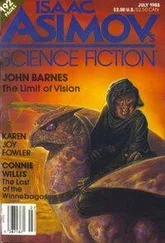“What are you going to do?” the calamity said. “Are you going to send it back? You’re going to drown it, aren’t you?”
“I do not intend to do anything until I have considered all the possibilities,” Mr. Dunworthy said.
“Utterly heartless,” she said.
“I am extremely fond of cabbies,” he said, “but there is a good deal at stake here. I must consider all the consequences and possibilities before acting. I realize that’s an alien notion to you.”
Cabbies? I wondered why he was so fond of them. I have always found them entirely too talkative, especially the ones during the Blitz, who apparently paid no attention to the admonition that “Loose lips sink ships.” They were always telling me how someone had been buried alive in the rubble or got blown up — “Head was all the way across the street in a shop window. Milliner’s. Riding in a taxi just like you are now.”
“Are you sending me back?” she said. “I told them I was going out sketching. If I don’t come back, they’ll think I’ve drowned.”
“I don’t know. Until I decide, I want you in your rooms.”
“Can I take it with me?”
“No.”
There was a sinister-sounding silence, and then the door opened, and there stood the most beautiful creature I’d ever seen.
Finch had said Nineteenth Century, and I’d expected hoop skirts, but she had on a long, greenish gown that clung to her slim body as if it were wet. Her auburn hair trailed about her shoulders and down her back like water weeds, and the whole effect was that of a Waterhouse nymph, rising like a wraith out of the dark water.
I stood up, gawping as foolishly as the new recruit, and took off my ARP helmet, wishing I had cleaned up when the nurse told me to.
She took hold of her long, trailing sleeve and wrung it out on the carpet. Finch grabbed a fax-mag and spread it under her.
“Oh, good, Ned, you’re here,” Mr. Dunworthy said from the door. “Just the person I wanted to see.”
The nymph looked at me, and her eyes were a dark clear greenish-brown, the color of a forest pool. She narrowed them. “You’re not sending that, are you?” she said to Mr. Dunworthy.
“I’m not sending anyone. Or anything until I’ve thought about it. Now go change out of those wet clothes before you catch cold.”
She gathered up her dripping skirts with one hand, and started out. At the door she turned back, her rosy lips open to impart some final benediction, some last word to me perhaps of love and devotion. “Don’t feed her. She’s had an entire place,” she said, and drifted out the door.
I started after her, bewitched, but Mr. Dunworthy had his hand on my arm. “So Finch found you all right,” he said, steering me around behind Finch’s desk and into the inner office, “I was afraid you’d be off in 1940 at one of those church bazaars Lady Schrapnell keeps sending you to.”
Outside the window I could see her crossing the quad, dripping gracefully on the pavement, a lovely… what were they called? Dryads? No, those were the ones that lived in trees. Sirens?
Mr. Dunworthy came over to the window. “This is all Lady Schrapnell’s fault. Kindle’s one of my best historians. Six months with Lady Schrapnell, and look at her!” He waved his hand at me. “Look at you, for that matter. The woman’s like a high-explosive bomb!”
The siren passed out of my vision and into the mist she had emerged from, only that wasn’t right. Sirens lived on rocks and shipwrecked sailors. And it sounded like dryads. Delphides? No, those were the ones who went about predicting doom and disaster.
“…had no business sending her in the first place,” Mr. Dunworthy was saying. “I tried to tell her, but would she listen? Of course not. ‘No stone unturned,’ she says. Sends her off to the Victorian era. Sends you off to jumble sales to buy pincushions and tea towels!”
“And calves’ foot jelly,” I said.
“Calves’ foot jelly?” he said, looking at me curiously.
“For the sick,” I said. “Only I don’t think the sick eat it. I wouldn’t eat it. I think they give it to the next jumble sale. It makes the rounds from year to year. Like fruitcake.”
“Yes, well,” he said, frowning. “So now a stone has been turned, and she’s created a serious problem, which is what I wanted to see you about. Sit down, sit down,” he said, motioning me toward a leather armchair.
Finch got there first with a fax-mag, murmuring, “So difficult to get soot out of leather.”
“And take off your hat. Good Lord,” Mr. Dunworthy said, adjusting his spectacles, “you look dreadful. Where have you been?”
“The soccer field,” I said.
“I gather it was a somewhat rough game.”
“I found him in the pedestrian gate by Merton’s playing fields,” Finch explained.
“I thought he was in Infirmary.”
“He climbed out the window.”
“Ah,” Mr. Dunworthy said. “But how did he get in this condition?”
“I was looking for the bishop’s bird stump,” I said.
“On Merton’s playing fields?”
“In the cathedral ruins just before he was brought to Infirmary,” Finch said helpfully.
“Did you find it?” Mr. Dunworthy said.
“No,” I said, “and that’s the reason I came to see you. I wasn’t able to finish searching the ruins, and Lady Schrapnell—”
“—is the least of our worries. Which is something I never thought I’d find myself saying,” he said ruefully. “I gather Mr. Finch has explained the situation?”
“Yes. No,” I said. “Perhaps you’d better review it for me.”
“A crisis has developed regarding the net. I’ve notified Time Travel and — Finch did Chiswick say when he’d be here?”
“I’ll check on it, sir,” he said, and went out.
“A very serious situation,” Mr. Dunworthy said. “One of our historians—”
Finch came back in. “He’s on his way over,” he said.
“Good,” Dunworthy said. “Before he gets here, the situation is this: One of our historians stole a fan and brought it back through the net with her.”
A fan. Well, that made a good deal more sense than a rat. Or a cab. And it explained the pinching part. “Like Lady Windermere’s mother,” I said.
“Lady Windermere’s mother?” Mr. Dunworthy said, looking sharply at Finch.
“Advanced time-lag, sir,” Finch said. “Disorientation, difficulty in distinguishing sounds, tendency to sentimentalize, impaired ability to reason logically,” he said, emphasizing the last two words.
“Advanced?” Dunworthy said. “How many drops have you made?”
“Fourteen this week. Ten jumble sales and six bishops’ wives. No, thirteen. I keep forgetting Mrs. Bittner. She was in Coventry. Not the Coventry I was in just now. Coventry today.”
“Bittner,” Mr. Dunworthy said curiously. “This wasn’t Elizabeth Bittner, was it?”
“Yes, sir,” I said. “The widow of the last bishop of Coventry Cathedral.”
“Good Lord, I haven’t seen her in years,” he said. “I knew her back in the early days when we were first experimenting with the net. Wonderful girl. The first time I saw her I thought she was the most beautiful creature I’d ever seen. Too bad she had to fall in love with Bitty Bittner. She was absolutely devoted to him. How did she look?”
Hardly like a girl, I thought. She’d been a frail, white-haired old lady who had seemed ill-at-ease through the whole interview. She had probably thought Lady Schrapnell was going to recruit her and send her off to the Middle Ages. “She looked very well,” I said. “She said she had some difficulty with arthritis.”
“Arthritis,” he said, shaking his head. “Hard to imagine Lizzie Bittner with arthritis. What did you go and see her for? She wasn’t even born when the old Coventry Cathedral burned down.”
Читать дальше











![Helen Rowland - The Widow [To Say Nothing of the Man]](/books/752764/helen-rowland-the-widow-to-say-nothing-of-the-man-thumb.webp)